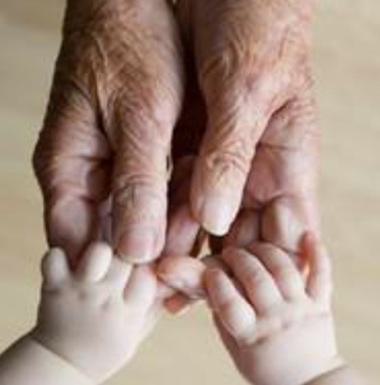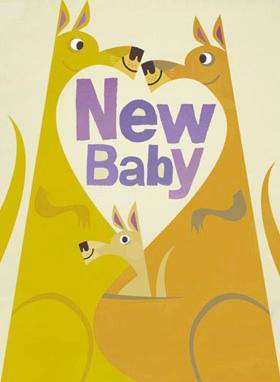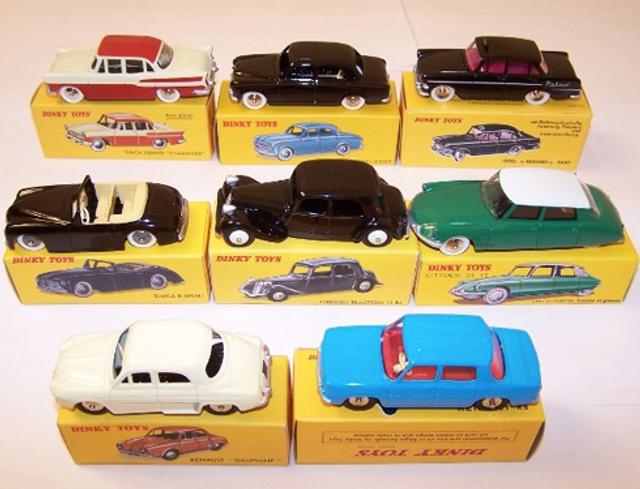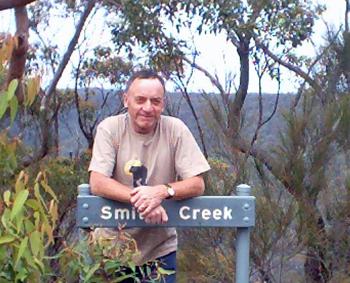Infantile musings: on the relationship between children and their grandparents
George mulls over the reasons we might want to change the world – and make a donation in the process.
- Written by
- George Smith
- Added
- August 20, 2013
 View original image
View original image
Great news from Smith Towers. Borrowing the first person announcement plural from Mrs T [Margaret Thatcher], I can announce that we are going to be a grandfather. The daughter married with such breathtaking expense on the lawn last year has gone for it, succumbed to my frequent readings about the horrors of childlessness from the public prints, witnessed my flamboyant knitting of mittens and collecting of soft cuddly toys, and has announced the arrival of a person and heir next spring.
And there is suddenly a spring in my step as well. We can change nappies again. We can dandle and make goo-goo noises. We can haunt the Early Learning Centre, study books of likely names – will Ringo and Ziggy again be considered by the memsahib? We can plan trips to zoos after an earnest discussion about the political correctness of such excursions. We can turn the spare room into a nursery. I can have a Meccano set again.

I have already reported this programme to the happy young couple. With terse forbearance, they have made the pettifogging point that the child will be essentially theirs and that the role of grandparents is normally expected to be marginal and occasional. I am, in short, not to get too excited and silly about it.
What me? Middle age offers serenity and continuous if repetitive delights, but I have to tell you that true excitements get to be increasingly well spaced. The last time I was as excited as this was when Botham clobbered the Aussies and the time before then was the birth of my second daughter earlier the same year [1981]. I debriefed the Headingley score to her minute by minute as she slept soundly in her cot. General elections, Gulf Wars, World Cups, family weddings, Oasis albums, Spielberg movies – I have enjoyed them all. But nothing matches the anticipation of a new nipper, even one-stage removed. And, perhaps, especially when one-stage removed.
 View original image
View original image
For the relationship between child and grandparent is famously the most easeful, natural and beautiful in the whole gallery of human relationships. The wrinklies can afford to be indulgent for they have mere walk-on parts in the process of rearing. They don’t have to shout, scold, or complain; they can simply beam and dandle at irregular intervals. No wonder children warm to these benevolent old things for they offer kindliness, support and fun with nary a nasty word. At least, that’s what I hope for.
And as my heart soars, my wallet lightens. Being happy, I feel philanthropic and altruistic. This child will hopefully live through a good chunk of the next century and all my old ‘change-the-world’ rhetoric comes flooding back for now I have a discernible and personal interest in that world. For the moment I am a very warm donor.
 View original image
View original image
Charities cannot easily be expected to identify these personal moments of serendipity among their supporters, but they might well consider how better they could service those moments. The only time that the key events in human life are listed as fundraising opportunities seems to be in a legacy leaflet where the personal stocktaking that follows a marriage, a birth, a house-move, or retirement is seen, quite properly, as a nudge to make a bequest. But why isn’t a charity gift seen as a natural thing to make when something momentous happens? The greeting card business was the only retail sector to emerge unscathed from the recent recession. Think about it.
Celebration, private human celebration, is an undervalued asset in fundraising The death of Diana, Princess of Wales tells us much about ourselves. It teaches us that we are not totally cynical, that we are capable of unexpected emotion and respect. And it teaches us that many people’s reflex reaction to an emotional event is a charity donation, a thank-offering. It would not be opportunistic to mark the lessons and offer the donor greater help at the happy times as well as the sad times.
I know of only one charity product on the market that matches my current state of mind. Greenpeace has an upcoming scheme for grandparents that targets old farts like us and tells me that the Greenpeace agenda is worth supporting for future generations. I never doubted that, but I guess that they will be writing to me about it soon (probably phoning after this piece is published). Believe me, they will get a result.
But forgive me if I have to dash. I’m going up to the loft to get out my Dinky toys and blow the dust off those old jelly moulds. So much to do – and only eight months to get ready!
© White Lion Press 2011
This article is taken from Up Smith Creek, George Smith’s brilliant collection of articles and essays from 30 years as agent provocateur for Direct Response and Professional Fundraising magazines. See here.

















